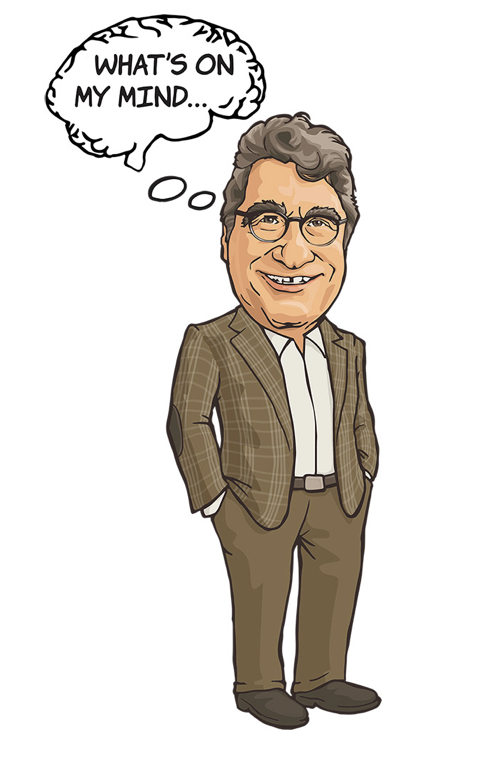 The mission of academic institutions is pretty straightforward: We search for and discover truths about the world. We search for these truths in service to humanity. Understanding the true nature of cancer cells—and discovering ways to impede their tragic growth—may one day ease the suffering of millions of people. This is also the case with developing a universal flu vaccine, or artificial limbs that uncannily mimic nature, or any number of vital projects happening at Vanderbilt.
The mission of academic institutions is pretty straightforward: We search for and discover truths about the world. We search for these truths in service to humanity. Understanding the true nature of cancer cells—and discovering ways to impede their tragic growth—may one day ease the suffering of millions of people. This is also the case with developing a universal flu vaccine, or artificial limbs that uncannily mimic nature, or any number of vital projects happening at Vanderbilt.
Of course, these quests lie in the realm of science and technology.
We must also recognize and embrace the disciplines within the arts and humanities that share just as intensely, just as passionately, in Vanderbilt’s mission-critical search for truth in the world. The visual arts, theatre, poetry, music, dance—these enlarge our understanding of what it means to be human, how we connect to the wider world around us—essential skills and perspectives in our fractured world.
I look forward to an open, inclusive dialogue at a town hall on Wednesday, Oct. 3, at 10 a.m. in the Student Life Center Board of Trust Room to discuss the essential context that an education in the arts, music and theatre provides to explorations in any discipline and at the same time foster new collaborations across campus.
Speaking personally, I believe deeply that the arts and the humanities make an indelible impact in society.
For instance, the playwright and composer Lin Manuel-Miranda’s musical Hamilton not only reshaped popular understanding of how U.S. democracy formed, but also offered a window into the opportunities—and challenges—immigrants face as they search for new lives in America.
On campus, we are both hosts to and beneficiaries of art exhibits, performances and cultural exchanges from some of the most creative, innovative thinkers anywhere in the world. Researchers, especially, have much to gain when art and science come together. An ongoing project at the Vanderbilt Kennedy Center is exploring the potential genetic links between how young children process music and the development of language skills. Similarly, The National Endowment for the Arts has designated Vanderbilt’s Program for Music, Mind and Society as a 2018 National Endowment for the Arts Research Lab for its focus on the arts, health and socio-emotional wellbeing in families of children with autism spectrum disorder.
But let’s address the elephant that’s usually in the room when discussion turns to the practical value of the arts and humanities. Will an undergraduate who has a degree in computer science earn more per year coming out of school than an English literature or music major? Probably, but research shows that both career and financial satisfaction for these disparate fields follow similar, positive paths.
The skills that employers often value most highly include empathy, creativity and the ability to work collaboratively—traits that anyone studying the human condition tend to have in abundance. This is why the creative arts are woven throughout all of our top-priority projects, from performance spaces in our new residential colleges to the location of our innovation center, the Wond’ry, next to the E. Bronson Ingram Studio Art Center to the inclusion of creative expression as one of the four pillars of Immersion Vanderbilt.
Last winter, I visited LinkedIn headquarters in San Francisco to speak with George Anders, author of You Can Do Anything: The Surprising Power of a “Useless” Liberal Arts Education. In the book, George writes: “You don’t need to apologize for the supposedly impractical classes you took in college or the so-called soft skills you have acquired. The job market is quietly creating thousands of openings a week for people who can bring a humanist’s grace to our rapidly evolving high-tech future.”
Perhaps more importantly, the arts and humanities give students and researchers new tools in their search for truth. I don’t think I could state this idea any better than Professor Celia Applegate and her committee did last year in their final report on the humanities at Vanderbilt: “The world presents us with many locks, many barriers to understanding, and so we need many keys. The more keys [we] have to unlock the world, the better [we] will work and thrive in it.”
I hope you’ll join me and our faculty members on Wednesday for what I’m sure will be a lively, spirited discussion.